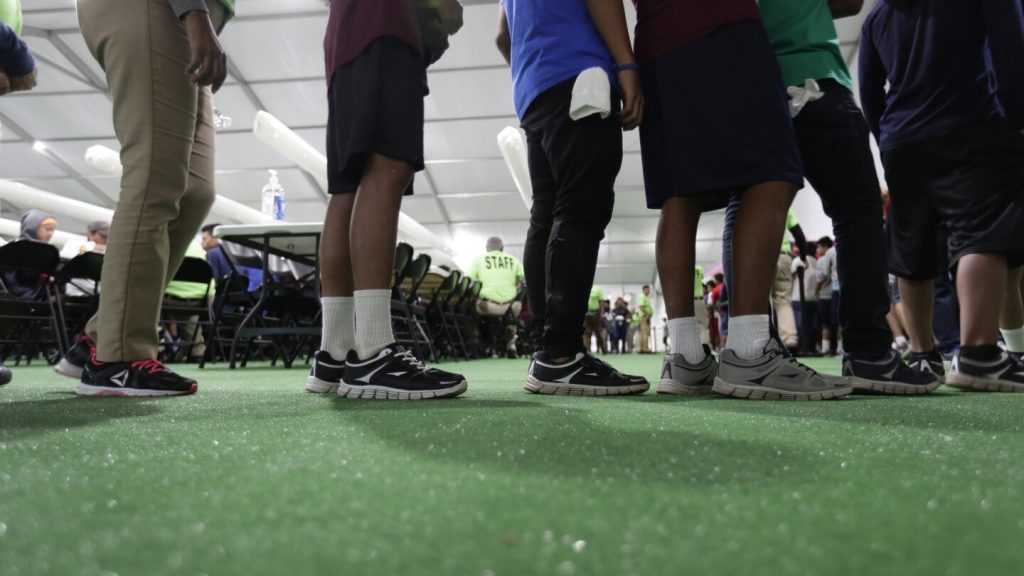The Biden administration is seeking to end a 27-year-old agreement that oversees the care of migrant children in federal custody. The government argues that new regulations established by the Health and Human Services Department will ensure the safety of children, rendering court supervision unnecessary. Children’s advocates, however, credit the Flores agreement with ensuring safe conditions for children, especially in light of increasing border detentions in recent years.
The Flores agreement, established in 1997 after a lawsuit detailing mistreatment of migrant children, sets standards for the detention, treatment, and release of minors in federal custody. It mandates that children be released promptly to family or a child welfare program if possible, and includes standards for licensed shelters to provide basic necessities like food, water, and medical care. Over the years, responsibility for the care of migrant children has shifted between different government agencies, with Homeland Security typically handling children upon arrival and Health and Human Services taking over within 72 hours.
The Biden administration’s move to end court supervision for unaccompanied minors in Health and Human Services custody has raised concerns among advocates for child migrants. While the government argues that new regulations exceed the standards set by the Flores agreement, advocates worry about the removal of third-party oversight at facilities housing children. The fate of the Flores agreement now rests in the hands of a judge who must approve the government’s request, with opposition expected from advocacy groups who believe the oversight is crucial for ensuring the well-being of children in government custody.
Advocates are particularly concerned about how facilities in Texas and Florida, states that have stopped licensing facilities for unaccompanied migrant children, will be monitored if the Flores agreement is terminated. The government argues that facilities in those states will still be subject to standards and monitoring, but advocates question the effectiveness of the assurances provided. The potential lifting of oversight in Texas and Florida could create a gap in monitoring and oversight, leaving children vulnerable to harm without the ability for third-party lawyers to visit and assess conditions in those facilities.
The Biden administration’s efforts to end court supervision for migrant children in federal custody have stirred debate among advocates, government officials, and legal experts. While the government asserts that new regulations meet or exceed the standards of the Flores agreement, concerns remain about the removal of third-party oversight and the potential impact on facilities in Texas and Florida. As the fate of the Flores agreement hangs in the balance, advocates continue to push for transparency and accountability to ensure the safety and well-being of migrant children in government care.


